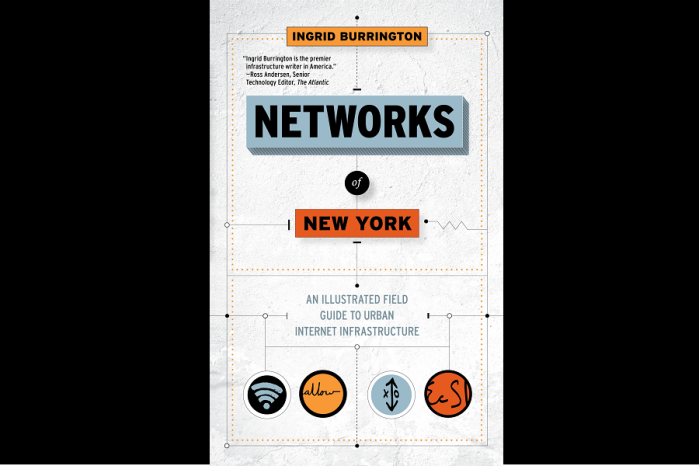A.O. Scott doesn’t have a popular job. Since 2000 he’s written about the arts for The New York Times, graduating to chief film critic in 2004. Since then he’s become a well-known name — renowned enough to get name-dropped in an episode of “BoJack Horseman.” (He confesses this gets him choked up.) His is a profession of sometimes savage opinions that often inspires savage opinions itself. Scott confronts many of the arguments against criticism in his first book, “Better Living Through Criticism: How to Think About Art, Pleasure, Beauty and Truth.” Beyond being mere consumer reporting, Scott discusses how criticism should inspire readers to think critically about life and argues critics are a necessity to understanding art and the world. RELATED:Dig Old Hollywood stars drinking coffee with a new book Scott talks to us about the changing nature of his job and not wanting to rest on his laurels as a writer for a renowned publication.
The other day you tweeted out a message from Tom Green congratulating you on the book, which gave you the opportunity to post your old positive review for his film “Freddy Got Fingered.” You wrote one of the few non-hostile pieces about it. At the time even Tom Green was fairly shocked to have a positive review in The New York Times. They didn’t use the quote in the ads. It wasn’t the image they wanted to project. That review has stuck around, and people have maybe taken another look at the movie. Some have put on the DVD and turned it off after 10 minutes, because they’re just appalled at what they see. Other people may think, “Oh, there’s something going on here. This might be art.” RELATED: Review: “Hail, Caesar!” is the Coen brothers’ deceptively light look at Old Hollywood A lot of pieces about film criticism tend to be very defensive. This is more positive.
I didn’t want to write a book that was just a defense of my job, that said I should be allowed to keep it and I’m very important. Some people might assume or think that’s what the book is. But it’s not about criticism as a profession, though there’s certainly stuff that talks about its history and its future. It’s more about criticism as an activity, as part of the larger cultural product of making and evaluating art and figuring out our place in the world. This book is not an instruction manual on how to do criticism. It’s more like an encouragement to figure out how to do it. Criticism is in a weird spot right now. Film critics were the first people to go when print media began collapsing, and the future isn’t clear.
It’s been a rough decade or so for critics, as it has been for everyone who works in print and traditional media. A lot of critics were flushed out, as were a lot of copy editors and investigative reporters. At the same time the function of criticism has been taken over by algorithms or apps and websites like Yelp. I have mixed feelings about this. On one hand I like my job. I believe in professionalism, and in craft and care. But I also think the proliferation of voices means we have to go out in the world and improve ourselves and be persuasive every time. I have a very visible job at an old and prestigious publication. I still have to write as well as I can, as clearly as I can, with as much energy as I can, or people will go somewhere else. They’ll ignore me. I like that. That really keeps me on my toes. Some people might say, “Oh, he works for The New York Times.” I don’t want that authority. I want to prove myself every time I sit down to write. RELATED: Review: ‘Deadpool’ is an anti-Marvel film that’s deeply in love with itself Still, whenever young people ask me about tips on becoming a critic, I usually have to resist simply saying, “Don’t,” even as I feel it’s an important job.
It’s not like there was a time when guidance counselors were like, “Criticism, that’s the ticket, good plan.” It’s always been difficult in different ways. But it’s important. It’s always been worth doing. You have a long chapter called “How to Be Wrong.” Some people think reviews are set in stone, but critics often change their minds. I imagine you’ve flip-flopped on certain films.
It happens. I look at some of my Top 10 lists from the past and I’m like, “What?!” I’ve had a policy of not specifying what those are. There are plenty of them. When I first started, the first Jia Zhangke movie I saw, which was “Platform,” I wrote a pretty lukewarm, impatient review of it. It was only after I’d seen more of his movies that it became clearer to me what he was doing. I didn’t go back and write about it again, but I did acknowledge the achievement that I had been blind to before. RELATED: Michael Mann gets his first complete retrospective in New York City This is a general question, but as someone who came to film criticism from book reviewing, what attracts you to writing about movies specifically?
One is the range of stuff you get to write about. When you write about books, you write 90 percent of the time about a narrow range of what’s being published. The amazing thing about writing about movies is you take it all in. You write about big commercial movies, you write about genre movies, you write about kids’ movies, you write about documentaries, you write about foreign-language films. Every week you get this extraordinary range to write about. And the movies you see are about everything. Roger Ebert said that movies are about every aspect of human life. You get to say something about politics or sex or love or religion. I don’t really know how to write about those things directly. I’m not a political pundit or a historian or a memoirist. But I can dabble in all those things as a film critic. It’s not just that there’s a great variety of movies, but every movie that’s worth writing about contains within itself very complex and rich information and ideas about life. A.O. Scott’s “Better Living Through Criticism: How to Think About Art, Pleasure, Beauty and Truth” is out today.
A.O. Scott talks film criticism, his defense of ‘Freddy Got Fingered’
Follow Matt Prigge on Twitter @mattprigge


















